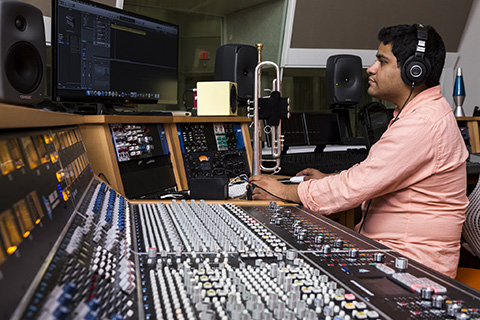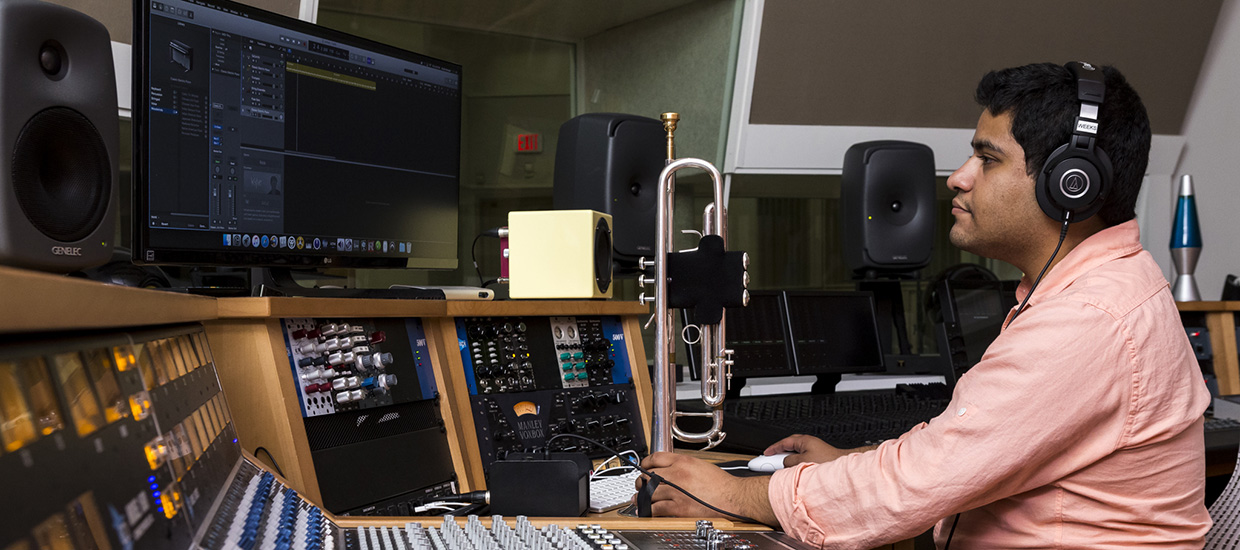Course work includes studio and live music recording, mixing, post-production, digital audio, acoustics, studio design, transducer theory, signal processing, film/video production, and audio design. In addition, students may play in ensembles throughout their four-year stay. Our graduates enjoy a very high placement rate in the professional and consumer audio industries. Many graduates occupy prestigious positions and have achieved great success in their work. For example, as recording engineers, graduates have recorded gold, platinum, and Grammy award-winning albums, and mixed the soundtracks of Oscar-winning motion pictures.
The Music Engineering Technology program is designed for students who desire a career in music recording, film and video production, audio equipment and software design, sound reinforcement, broadcasting, or studio design and installation. Students completing the undergraduate program earn a Bachelor of Science degree. They can choose a minor in electrical engineering (hardware study), or computer engineering (software study). Both curricula tracks are completed in four years. Combining the study of music with technology ensures that graduates are proficient audio engineers as well as accomplished musicians.





